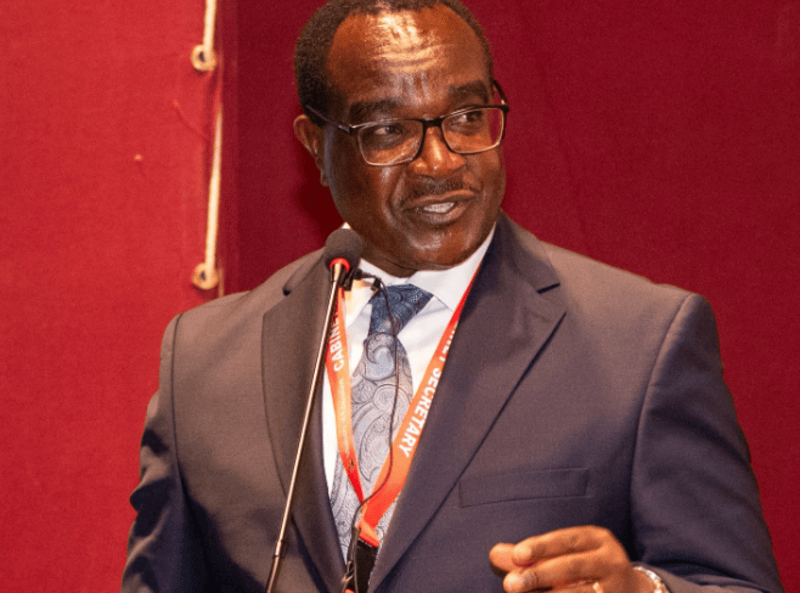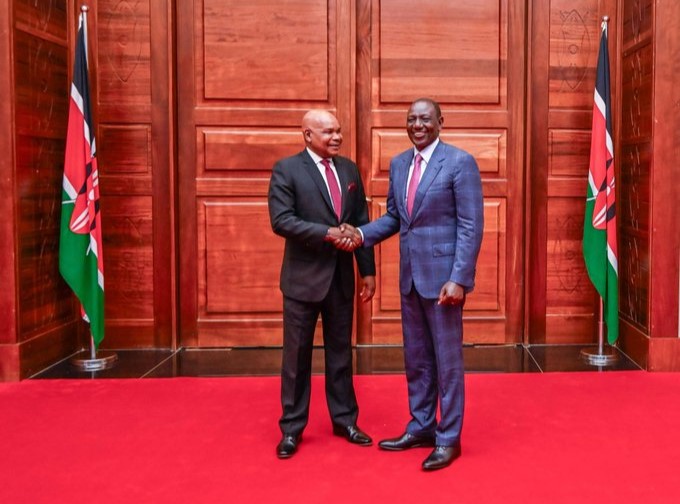Mudavadi urges legal awareness before travel as over 1,000 Kenyans jailed abroad

Mudavadi told the MPs that while embassies are ready to assist, the most effective way to reduce foreign detentions is to ensure Kenyans are well-informed before they leave the country.
The government has revealed that more than 1,000 Kenyans are currently locked up in foreign prisons, with many facing charges that could have been avoided through better legal awareness before travel.
Speaking during a session with members of the National Assembly on Wednesday, Foreign and Diaspora Affairs Cabinet Secretary Musalia Mudavadi said most of the affected individuals are young people who left the country without proper knowledge of laws in their destination countries.
He was responding to a question raised by West Mugirango MP Stephen Mogaka, who sought clarification regarding government efforts to protect Kenyans abroad.
The question followed the arrest of Kenyan citizen Chris Anyuga Barake in India on October 6, 2023, over alleged online fraud.
Mudavadi told the MPs that the number of Kenyans arrested in foreign countries has risen steadily, with the majority of them being young people.
He urged them to take part in creating awareness among citizens intending to travel for work or study abroad.
“It is not our wish to see these Kenyans languishing in various places. I would like to urge that as leaders, we must engage in a collective campaign to convey messages of awareness, especially to the young people,” Mudavadi said.
The CS said the main challenge is that most of those who get arrested are unaware of the legal risks they face.
He called on the National Assembly to support civic education campaigns to help reduce the number of Kenyans getting into conflict with the law while overseas.
He said government missions in foreign countries provide various forms of support to Kenyans in legal trouble, including helping them understand legal proceedings by offering translation services.
“For Kenyans in conflict with the law, the missions facilitate them with the services of a translator, more so in non-English speaking countries to ensure they understand the court proceedings,” he said.
Monitoring court cases
Mudavadi added that while embassies do not provide legal defence, they take part in monitoring court cases to ensure the detainees' rights are respected and that families back home are kept informed
“In certain cases, mission staff attend court hearings. While they do not offer legal representation, they monitor the cases to ensure the right to a fair trial is not violated, and keep their families updated on progress,” he said.
Mudavadi explained that one of the key difficulties faced by Kenyans abroad is the delay in getting help from home.
“Time in such cases is critical. By the time loved ones back home realise it, it may be too late to help,” he told MPs.
To address these challenges, the government has introduced new measures aimed at supporting Kenyans living in areas far from embassies.
These include mobile consular services and outreach programmes designed to reach those who may not have access to embassy services.
“We have also introduced mobile consular services and outreach programmes to reach more Kenyans in remote areas far from our embassies. Additionally, the Department of Diaspora Affairs has developed a legal aid and information framework to equip Kenyans going abroad with essential information about their destination country,” Mudavadi said.
He assured the House that the Department of Diaspora Affairs continues to negotiate agreements with other countries to ensure Kenyans working abroad are treated fairly and receive the support they need when facing legal problems.
Mudavadi told the MPs that while embassies are ready to assist, the most effective way to reduce foreign detentions is to ensure Kenyans are well-informed before they leave the country. He said civic education, especially targeted at the youth, is key to avoiding trouble in foreign lands.
According to him, prevention remains the most powerful tool.
He encouraged elected leaders to play an active role in educating their constituents about the dangers of travelling without understanding foreign laws.
The session served as a reminder of the increasing risks faced by Kenyans abroad and the urgent need for collective action to ensure every citizen travelling outside the country knows their rights, responsibilities and the laws they are likely to encounter.
Top Stories Today











































